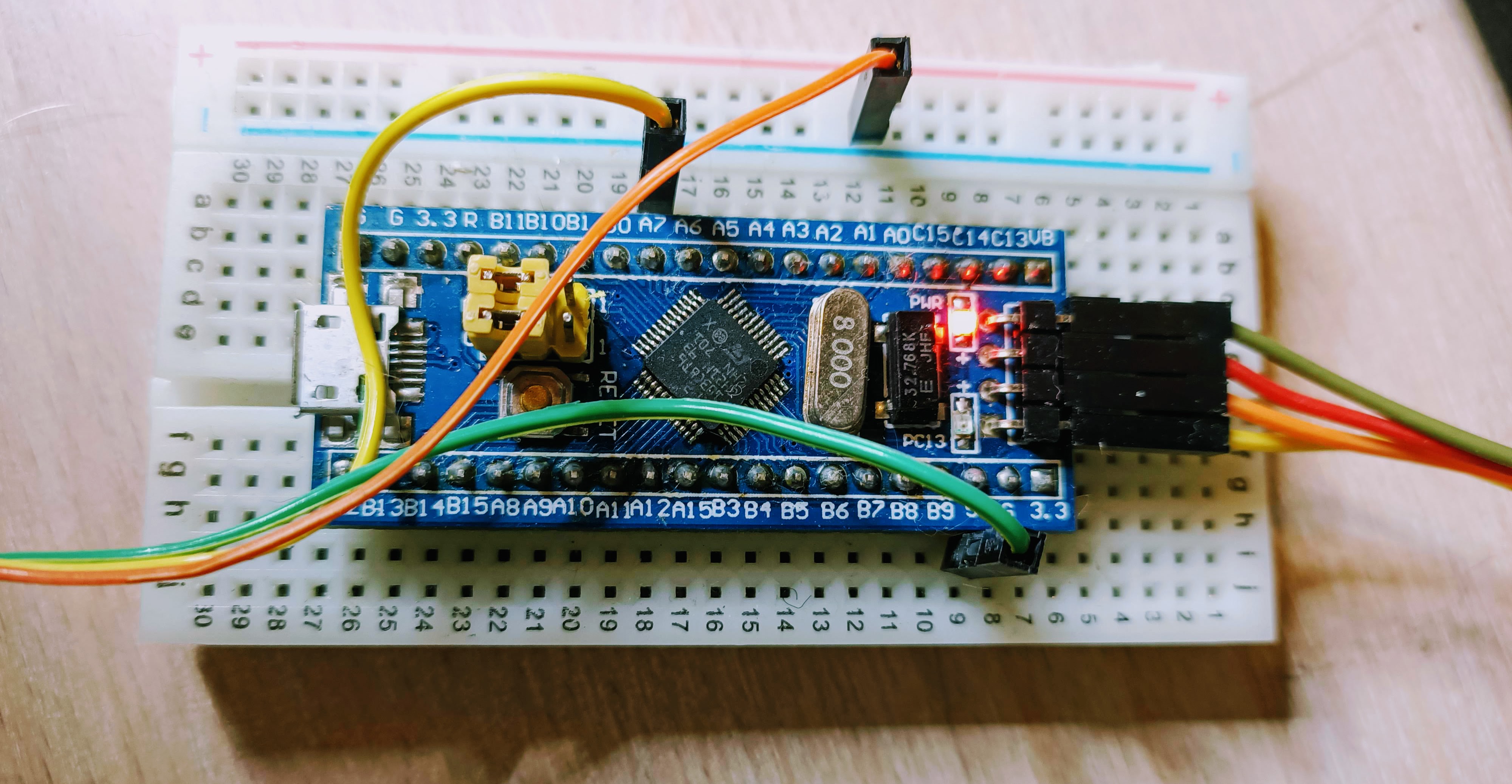Why Learn Embedded Rust on the STM32F103 Blue Pill
Categories: bluepill, embedded, microcontroller, rust, stm32

I have spent quite a bit of time recently trying to learn the Rust programming language for use on the $2 ARM Cortex M3 STM32 board, commonly known as the “Blue Pill”. The learning process has often been frustrating, and it has not been quick. But I feel I can share some code, and tips which can make it less painful.
Where have I come from?
I am a full time developer working on the Microsoft stack for a number of years in the high level C# realm. As a hobbyist, I have a strong interest in microcontrollers, and have tinkered with PIC and AVR using assembly language, C, and Arduino. I love the Arduino platform due to it’s accessibility for noobs, but I’ve been itching to move away from it. Why?
Why the Blue Pill?
Cost
For the same price as an 8MHz 8bit Arduino Pro Mini clone, I can buy a 72MHz, 32 bit Arm Cortex M3 board (and for not much more, a Cortex M4F)
Features
For my projects, both Arduino and Arm Cortex M3 boards will have all the features I need, but the stm32 boards have greater horsepower, which allows the running of a simple RTOS, along with more complex code in interrupt handlers.
Debugging
It is possible to do real debuggiong on the stm32 board, when connected to an ST-Link debugger. It should be possible to stop using printing-to-the-console to debug, and instead set breakpoints and step through the code like a real programmer!
Why Rust?
I love the simplicity of Arduino code. This simplicity is all due to the friendly design of the libraries. But, it is still C++, and once your code starts getting even slightly complex, you hit all the problems of C++, including various abuses of pointers which cause hard to find runtime bugs. Rust promises the speed of C/C++ with a more robust system of memory safety, whereby the compiler always knows which code block a variable belongs to, and thus can check for many sources of bugs at compile time (this is a gross oversimplification. Go and read the docs yourself) I don’t have the clout to convince anyone that Rust is worth the effort, but you have to at least check it out. Start with the official docs rust-lang.org/what/embedded
It also helps that Rust has a very helpful compiler. Compiler error messages are not the afterthought that they are in C++. They system has been carefully thought out, and is exceedingly helpful to noobs.
The Trap
It is always dangerous to learn a new tool or lanaguage and then use it for absolutely everything, no matter how inappropriate it may be. For some projects, an 8 bit microcontroller on Arduino may be the best choice. But, to maximise the little time I have for learning the new platform, I will be focusing my efforts on Rust on the STM32 for current hobby projects.
Comments